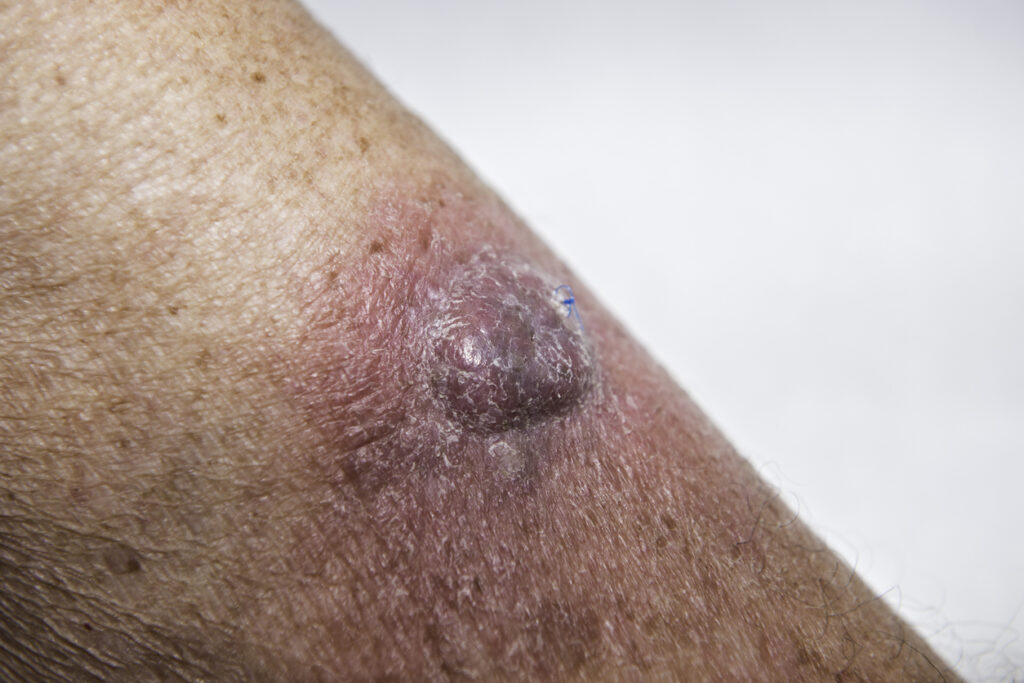A man with advanced cutaneous squamous cell carcinoma has been in remission for more than a year following treatment with WTX-124 in a clinical trial at HonorHealth Research Institute in Scottsdale, AZ.
WTX-124, an investigational drug, is an engineered derivative of interleukin-2 (IL-2). The drug is designed to remain inactive in the periphery until it selectively releases fully potent IL-2 in the tumor microenvironment to stimulate antitumor immunity with reduced toxicity.
Wayne Futch, 73, of Phoenix, AZ, developed cutaneous squamous cell carcinoma, following a career in pool-maintenance that regularly exposed him to hours of strong sunlight. Despite wearing sunscreen and protective clothing, Mr. Futch’s face was disfigured by skin cancer. He lost his right eye following more than 60 radiation treatments that ultimately did not cure the malignancy.
“It disfigured my face,” Mr. Futch says in a news release. “I knew I needed to take some different action, because the radiation was not getting rid of it.”
It was then that Mr. Futch learned of a new clinical trial at HonorHealth Research Institute. He enrolled in the clinical trial in September 2023. Mr. Futch was infused with the drug that substantially shrunk his tumor in just 8 weeks and left him with no detectable cancer after 12 weeks.
“I haven’t had any cancer since (the trial). I don’t have any pain, other than the nerve damage done by the radiation,” says Mr. Futch. “I feel confident that if (the cancer) ever comes back again, that they’ll detect it and get rid of it, because they did it once already.”
The clinical trial (NCT05660384) is evaluating the investigational drug as a monotherapy and in combination with pembrolizumab (Keytruda, Merck & Co., Inc.) in patients with immunotherapy-sensitive advanced or metastatic solid tumors who have failed standard of care treatment, including checkpoint inhibitor therapy.
“This drug is designed to be inactive upon infusion and only activated within the tumor, which means that we have the potential to get all of the benefit of IL-2 with much better safety,” says Justin Moser, MD, an Associate Clinical Investigator in HonorHealth Research Institute’s Cancer Research Division and Associate Research Professor at Arizona State University School of Medicine and Advanced Medical Engineering in Scottsdale. “We are overjoyed with the benefit that this patient received, especially given the very limited treatment options available for patients with immunotherapy refractory squamous cell carcinoma.”


